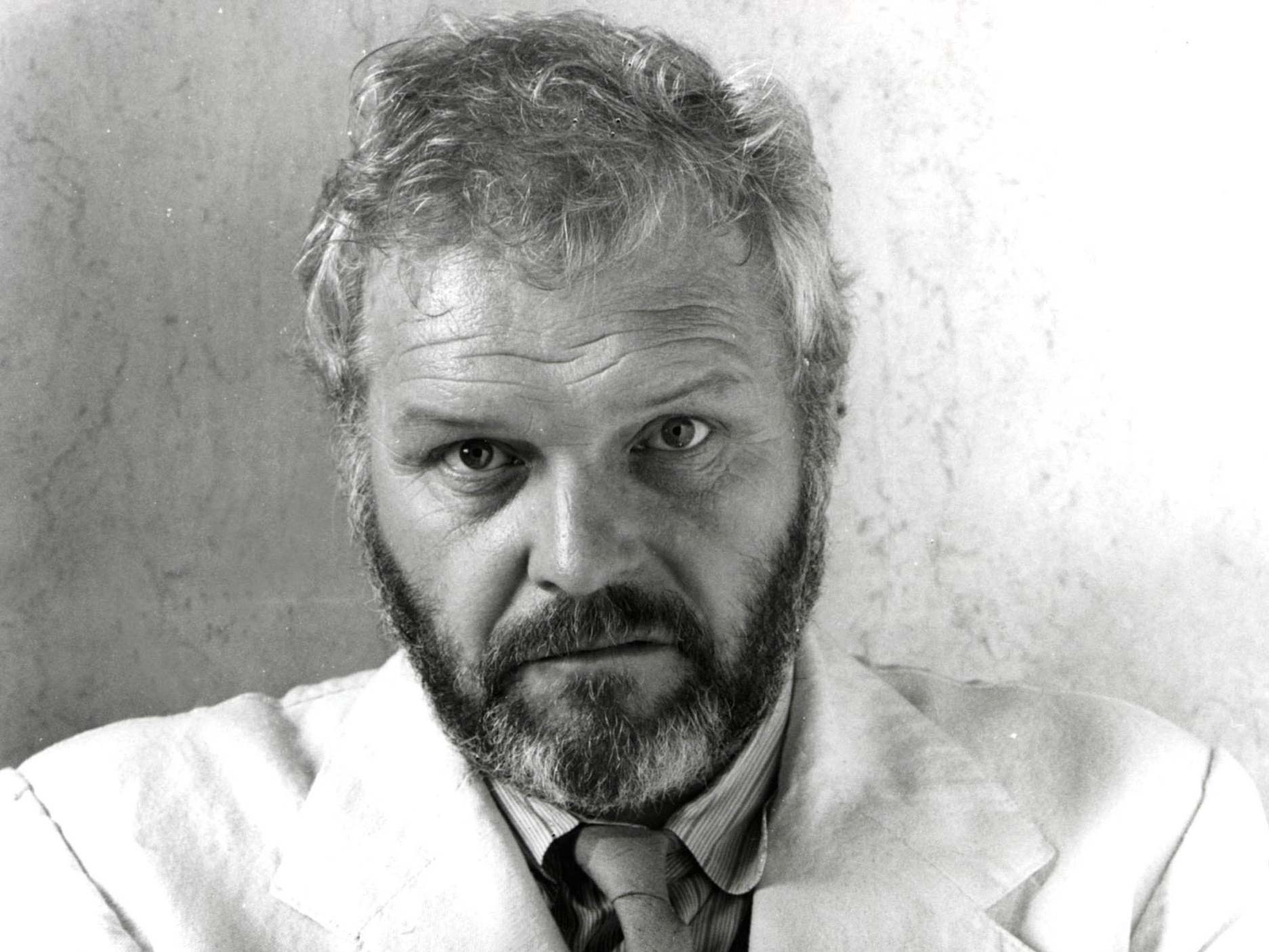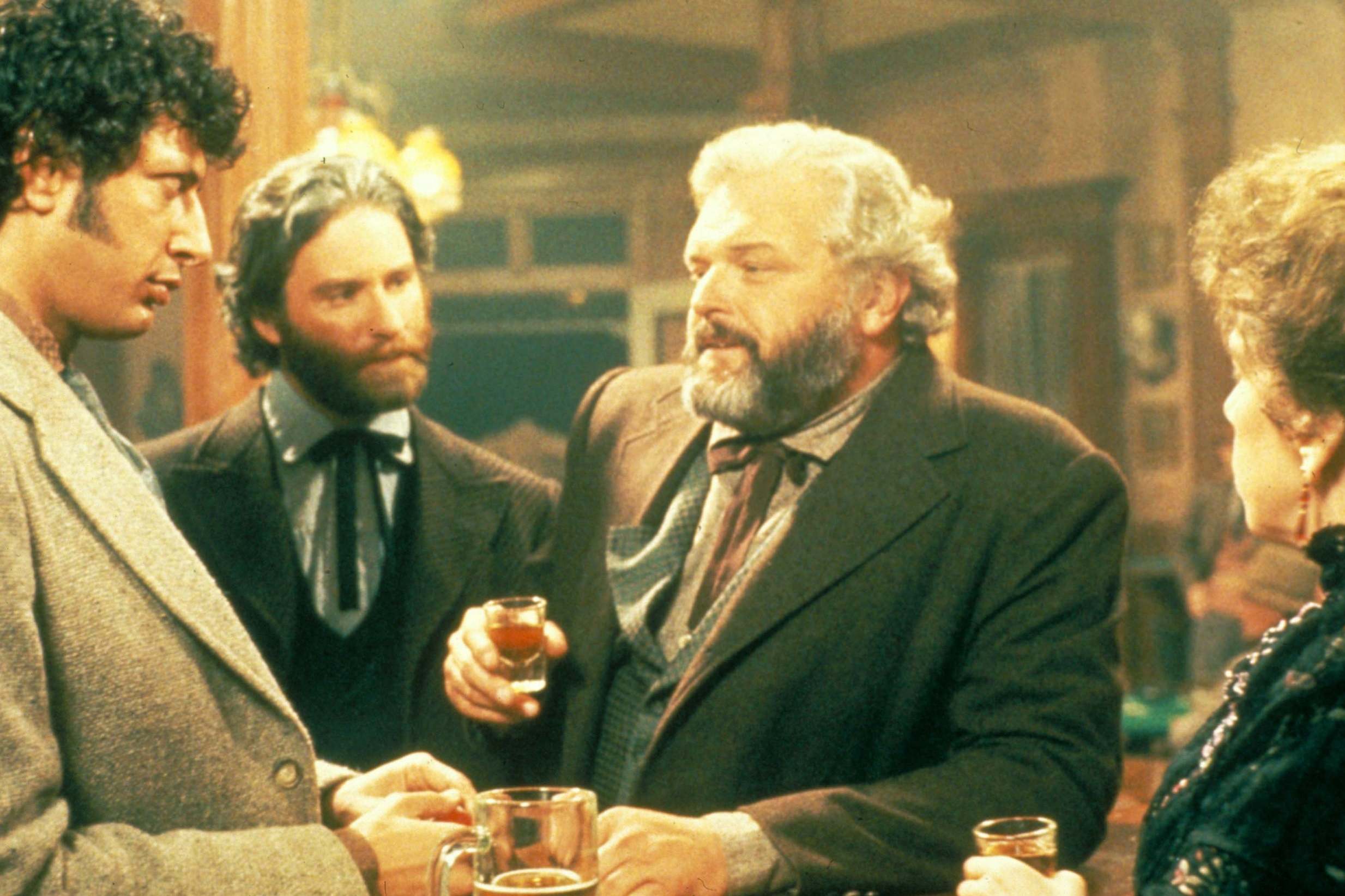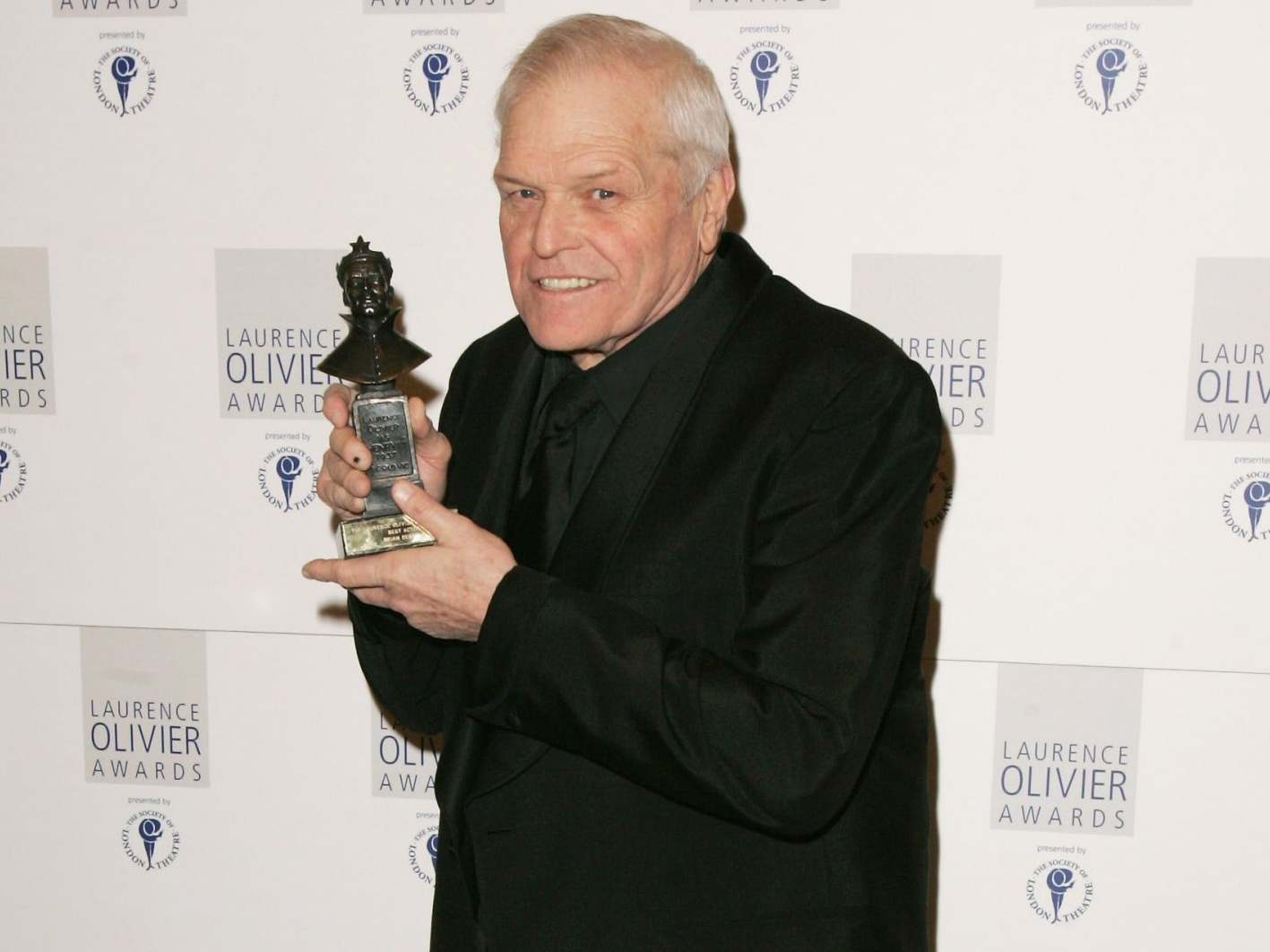Brian Dennehy: Gruff character actor and Tony-winning Broadway star
A familiar presence in film, he achieved greater acclaim on the stage in productions of Miller and O’Neill

Your support helps us to tell the story
From reproductive rights to climate change to Big Tech, The Independent is on the ground when the story is developing. Whether it's investigating the financials of Elon Musk's pro-Trump PAC or producing our latest documentary, 'The A Word', which shines a light on the American women fighting for reproductive rights, we know how important it is to parse out the facts from the messaging.
At such a critical moment in US history, we need reporters on the ground. Your donation allows us to keep sending journalists to speak to both sides of the story.
The Independent is trusted by Americans across the entire political spectrum. And unlike many other quality news outlets, we choose not to lock Americans out of our reporting and analysis with paywalls. We believe quality journalism should be available to everyone, paid for by those who can afford it.
Your support makes all the difference.Brian Dennehy was a Tony-winning actor who starred in plays by Arthur Miller and Eugene O’Neill and portrayed barrel-chested villains, gun-toting lawmen and the occasional charming father figure on-screen.
Dennehy, who has died aged 81, made much of his booming voice and an often intimidating screen presence, playing an overzealous sheriff opposite Sylvester Stallone’s Rambo character in First Blood (1982), a corrupt western lawman in the Kevin Kline film Silverado (1985) and serial killer John Wayne Gacy in the TV miniseries To Catch a Killer (1992).
He also starred as an endearing alien leader in Cocoon (1985), a role he modelled on the children’s show host Mr Rogers, and was featured in comedies such as Semi-Tough (1977) with Burt Reynolds, 10 (1979) with Dudley Moore and Tommy Boy (1995), as Chris Farley’s exasperated father.
Dennehy was celebrated for his work as a character actor in Hollywood and on television, where he earned six Emmy nominations. But he received even greater acclaim for his performances on the stage, starring in revivals of classic plays including O’Neill’s The Iceman Cometh, Anton Chekhov’s The Cherry Orchard and Bertolt Brecht’s Life of Galileo.
Dennehy won two Tony awards for best actor. His first came for playing the central role of Willy Loman in a 50th-anniversary revival of Miller’s tragedy Death of a Salesman in 1999.
Dennehy received an Emmy nomination for a 2000 television adaptation of the production and won his second Tony award for playing the domineering patriarch James Tyrone in a 2003 revival of O’Neill’s melodrama Long Day’s Journey into Night.
Both plays were directed by Dennehy’s longtime artistic collaborator Robert Falls and landed on Broadway after playing at the Goodman Theatre in Chicago, where Dennehy starred in productions that included a 2010 double bill of O’Neill’s Hughie and Samuel Beckett’s one-act Krapp’s Last Tape. On Broadway, he also appeared in a 2009 revival of O’Neill’s Desire Under the Elms.
Brian Manion Dennehy was born in Bridgeport, Connecticut, in 1938, and grew up in Brooklyn, Queens and Long Island, New York. His father was an Associated Press journalist, his mother a nurse, and by the age of 14, Dennehy was acting onstage, appearing as the lead in a high school production of Macbeth.

He played football and studied history at Columbia University, dropping out to serve in the Marine Corps before returning to receive his degree. “From 1965 to 1974 I served the best possible apprenticeship for an actor,” he said. “I learned firsthand how a truck driver lives, what a bartender does, how a salesman thinks. I had to make a life inside those jobs, not just pretend.”
Dennehy studied drama as a graduate student at Yale and, by the late 1970s, he was frequently appearing on television programmes including Kojak, M.A.S.H., Lou Grant and Dallas. His screen credits also included the movies Gorky Park (1983), F/X (1986) and director Peter Greenaway’s The Belly of an Architect (1987), as a sickly and cerebral architect. He also appeared in the Scott Turow adaptation Presumed Innocent (1990), Romeo + Juliet (1996) and Terrence Malick’s existential drama Knight of Cups (2015).
Dennehy received his last Emmy nomination for the TV movie Our Fathers (2005), playing a Catholic priest who opposes the church cover-up of sexual abuse and is later forced from the pulpit. He voiced the rat Django in the animated Pixar movie Ratatouille (2007) and was recently featured on the NBC crime series The Blacklist.
Dennehy, who traced his ancestry back to Ireland, acknowledged a personal connection with the brooding, hard-drinking characters he often played on the stage and screen. He was known for holding raucous St Patrick’s Day parties, once renting a 40ft mobile home and hiring a driver to take his friends from bar to bar, and boasted: “At my parties, the sheriff’s department comes three or four times a night.”
He eventually stopped drinking, turning his focus to acting. It had replaced the Catholic faith of his childhood, he said, with another religion: art.

“The most important function that an actor has,” he once said, “is, when he does his work right, he holds up a mirror to the audience and says, ‘This is you in some way. When you walk out of this place tonight, or when you turn the television set off, you will have seen a piece of yourself, and you will know something about yourself that you didn’t know before.’”
His first marriage to Judith Scheff ended in divorce, and in 1988 he married Jennifer Arnott, a costume designer. She survives him along with their two children and three children from his first marriage.
Brian Dennehy, actor, born 9 July 1938, died 15 April 2020
© Washington Post
Join our commenting forum
Join thought-provoking conversations, follow other Independent readers and see their replies
Comments